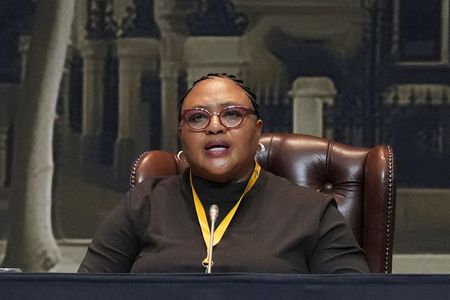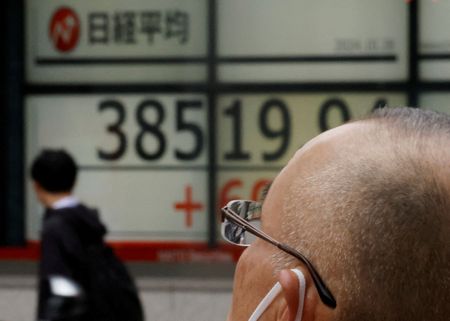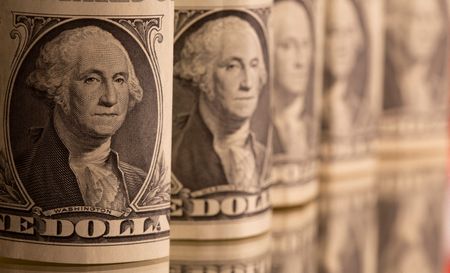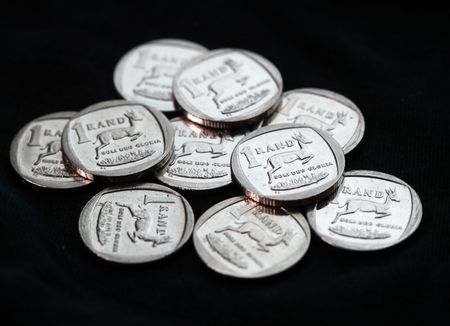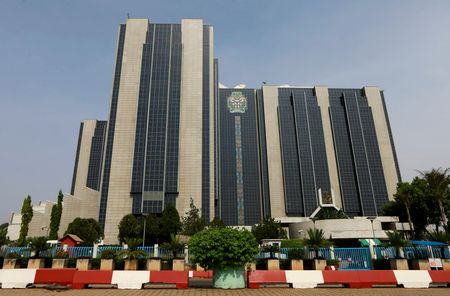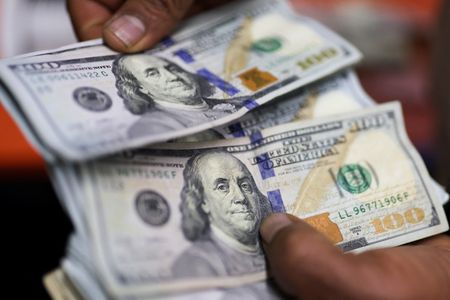By Wendell Roelf, Kopano Gumbi and Olivia Kumwenda-Mtambo
CAPE TOWN (Reuters) – South Africa’s national budget was postponed on Wednesday because the two biggest parties in the ruling coalition disagreed over raising value-added tax, an unprecedented delay that caused the rand and government bonds to fall.
The speaker of the National Assembly, Thoko Didiza, told lawmakers who had gathered to hear the finance minister deliver the budget that the speech would now happen on March 12.
For the first time since the end of apartheid, the African National Congress (ANC) will need the support of other parties to pass the budget, since it lost its parliamentary majority in an election last year.
Its main partner in the coalition, the Democratic Alliance (DA), said the budget had been postponed because of its opposition to a proposal to increase VAT by 2 percentage points to 17%.
There have been disagreements between the ANC and DA since the coalition government was formed in June, including over education and health legislation, but the last-minute budget delay caught most off guard.
Louw Nel, a political analyst at Oxford Economics, said the delay raised “serious questions about the coalition’s ability to deal with major disagreements”, and meant three weeks of uncertainty.
It comes as South Africa has been in the spotlight after a series of attacks by U.S. President Donald Trump, who suspended aid this month over the government’s land reform policy and genocide case against Washington’s ally Israel.
ANAEMIC GROWTH, CLIMBING DEBT
The Business Day newspaper reported on Wednesday that the proposal to increase VAT was intended to plug a revenue shortfall of billions of rand and support social and education spending.
The last time VAT was raised was in 2018. A broad swathe of political parties and labour unions have voiced strong opposition to rumours of a further increase, saying it would hit the poor disproportionately hard despite efforts to shield them through a list of “zero-rated” items.
Finance Minister Enoch Godongwana said there would be further discussions in government over a new budget.
The rand currency was last down about 1% against the dollar, while the government’s 2052-dollar bond was trading roughly 1 cent lower to be bid at 89.20 cents on the dollar .
Since the aftermath of the 2008-09 global financial crisis, the government of Africa’s most industrialised nation has struggled to deliver economic growth rates high enough to make a dent in inequality and unemployment.
Public debt has climbed to about 75% of gross domestic product because of revenue shortfalls and runaway spending.
Economists polled by Reuters had predicted that Wednesday’s budget would show wider budget deficit forecasts than in October estimates, and public debt stabilising at a higher level.
David Omojomolo, an economist at Capital Economics, said the budget delay suggested it was in domestic rather than foreign policy that “the cracks in the coalition lie”.
(Additional reporting by Tannur Anders and Sfundo Parakozov in Pretoria, and Bhargav Acharya in Johannesburg; Writing by Alexander Winning; Editing by Aidan Lewis)

